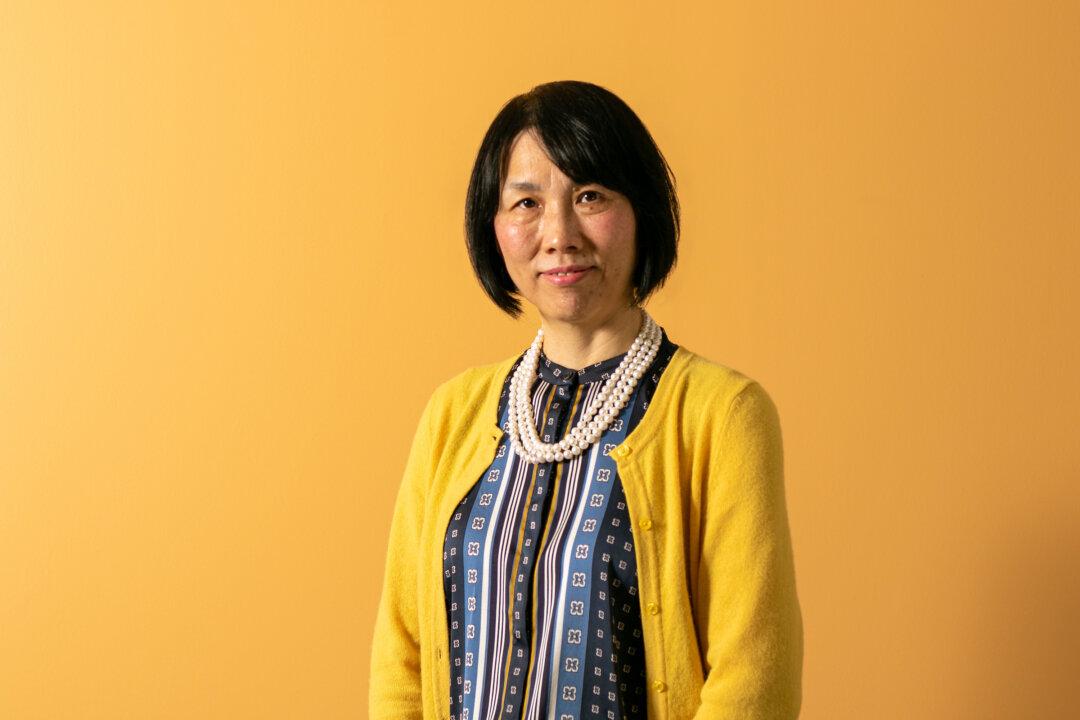It’s not just Americans who are only now realizing the extent of the Chinese Communist Party’s (CCP) influence and its deceptions—many Chinese living in mainland China are in the same boat.
For nearly 20 years, Jianglan Xiao has taken sharing the truth with the Chinese people as her mission. Working from California, she’s trying to warn people in China about the CCP’s lies. With the rise of the CCP virus, commonly known as novel coronavirus, they are starting to really listen.
The CCP is capable of vile, outright evil, and it carries out these acts in broad daylight, said Xiao, who grew up in China. “I know, because I know the CCP,” she said.
Xiao’s father was a school president, which meant that during the Cultural Revolution in the 1960s and 70s, he was sent to labor camps—but not before being publicly denounced and humiliated. This was the norm for all scholars and intellectuals. As a child, she didn’t understand what was happening; she only thought that if everyone was saying her father was bad, he must have been bad.
For years, she felt ashamed of him and didn’t even want to call him her father.
Turning Points
But, in 1998, Xiao’s world changed. She was gifted a book by a kind dentist she met who had made an impression on her. When she read it, she realized it was a guide to being a better person.“Zhuan Falun,” the main text of the spiritual practice Falun Gong, teaches truthfulness, compassion, and forbearance. Xiao realized it was completely at odds with the culture she lived in, but that was who she now wanted to be. She took up the practice and did the five meditative exercises every day.
A year later, Xiao got married and moved to the United States. Only a few months after her move, she heard some very upsetting news. Her sister told her that in China, Falun Gong (also known as Falun Dafa) had been officially banned by the Chinese Communist Party and that those who refused to renounce the practice were being detained and sent to “re-education camps”—in other words, brainwashing centers.
At the time, in 1999, the number of Falun Gong practitioners in China had risen to an estimated 70 million to 100 million—many more than the number of CCP members.
While Xiao was shocked, she knew what the CCP was capable of and could see why the Party wouldn’t want something so antithetical to its culture to thrive.
“Falun Dafa teaches us to be good people,” she said. “The CCP does not want us to be good people.”
Calling China
In 2001, from her home in California, Xiao and an elderly neighbor began calling people inside China to try to share the truth with them.“This was back before we had cellphones,” she said. “Some people would scold and curse us, and sometimes I just had to put the receiver down until they were out of steam. And then some of them would listen, and some would believe.”
All media in China are state-run and publish the same Party propaganda. With nowhere else to turn to for information, everyone with whom Xiao spoke believed the CCP’s lies. “But we had to let them know [the truth],” she said.
Xiao made many calls in those first years, in her spare time. Over the past 10 years, Xiao said, she has dedicated one morning per week to making the calls. And since the spread of the CCP virus, she has been trying to do more whenever she can.
Xiao, and others like her, try to call police stations and centers that are involved in the persecution of Falun Gong. Often, they speak to people directly involved in the oppression—those who say they have orders to go to practitioners’ homes, confiscate their books and belongings, and make arrests.
‘Tuidang’

In 2004, amid this brutal persecution of Falun Gong, The Epoch Times published “Nine Commentaries on the Communist Party.” The editorial series detailed the history of the CCP and laid bare its crimes against humanity. The truth shocked Chinese people living in China and abroad, and sparked a global movement to quit the CCP, also known as “tuidang” (quitting the party).
CCP Virus Coverup
Things took another turn with the rise of the CCP virus.“Last December, we already knew about the CCP virus, that it started in Wuhan, but they didn’t want to listen,” Xiao said. At the time, the CCP was still covering up all news of the virus as if it wasn’t spreading in China.
By January, the dam had broken, and people appeared to be starved for the truth.
“Since January, they listened very well,” Xiao said. But it was short-lived.
Outreach in New York
In New York, Xiaofang Guo tries to share information with the large population of Chinese nationals she sees on Main Street in the Flushing neighborhood of Queens. She has been persecuted herself by the CCP, detained in a labor camp for more than a year between 2011 and 2013, for practicing Falun Gong.Most people don’t want to listen, Guo said. Even so, she’s been trying to reach out regularly, since 2015.
Guo describes what sounds like a thankless job. Sometimes, people call her a liar, say the CCP is good because it pays them, and tell her the persecution is long over or even that it’s perfectly normal for that sort of persecution to take place in China. She’s had people shout at her, curse at her, and violently grab materials out of her hands and throw them on the ground.
“They’ve listened to all of the lies for 20 years,” Guo said. Even outside of China, many of the people she speaks to get their news from China-run media sources.
The CCP’s reach is long enough that even those who understand the lies are too scared to speak out, or even be seen listening to the truth.
“They'll say they still have to go back to China—they’re really scared,” Guo said.
Then there are some who will listen to her, then ask specific questions. They want to know if Guo can refute the CCP’s talking points. After listening to facts and reason, they might even tell Guo they are thankful for her mission and now support Falun Gong.
“I want to save Chinese people from the lies,” Guo said. “I really think I have a mission to do this.”





